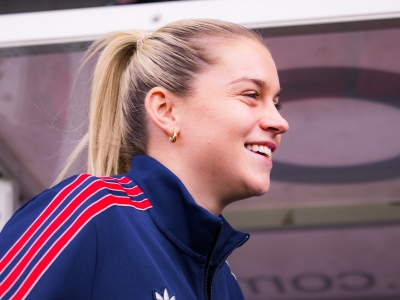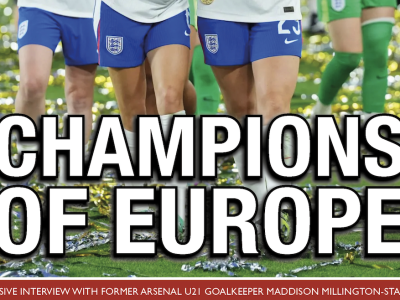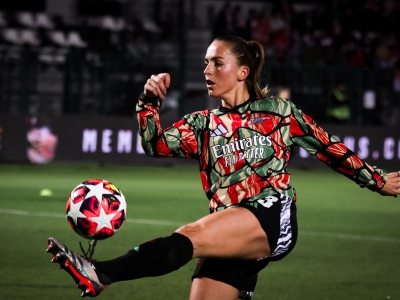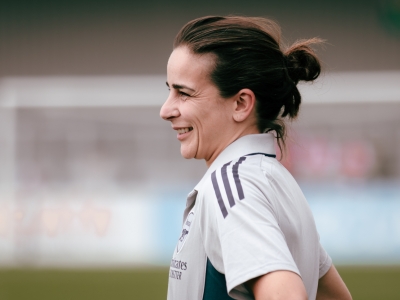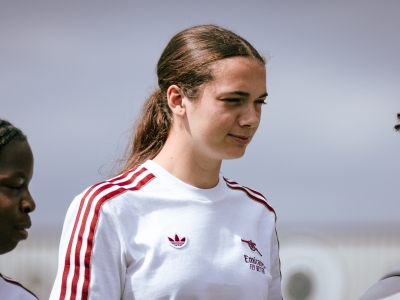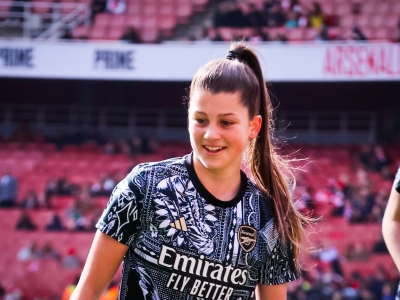Specific defeats can mark the beginning of the end for managerial eras, the point of no return in the lifecycle of a team. Looking back they stand out in the arc of history as the moment when decline shifted from being a perception into a reality, yet at the time their significance can perhaps be missed amidst the general disarray of losing sequences, just one of so many setbacks. Managers, and teams, can limp on but when the end comes it is always back to a certain game that we go to begin to trace the irresistible inevitability of the fall.
The 29th November 1983 was just such an occasion, marking as it does the symbolic end of Terry Neill’s reign, the infamous 2-1 home League Cup elimination at the hands of third division Walsall, despite the fact that the previous game had witnessed perhaps a more profound shambles of a 3-0 defeat at Leicester City, and that further ignominies were to be encountered before the axe fell. Neill’s football death, in retrospect, was a long lingering affair lasting two or three seasons, but the Walsall game felt like an ending, and it has perhaps become the hook we hang the narrative of Neill’s decline upon.
Ten years earlier, another, painful cup elimination stands out as a symbolic ‘end of the affair’ defeat, which perhaps, at the time, wasn’t quite as obvious a landmark defeat as it might otherwise have been seen as. Never-the-less, it was a still shattering loss by any standards, and it was one which came upon Arsenal in the unlikely guise of a man in a Trilby hat and a mucky old raincoat.
On the 7th April, 1973, beneath leaden grey northern skies Arsenal met second division Sunderland at Hillsborough in the semi-final of the FA Cup. Although manager Bertie Mee continued as the Arsenal manager for another three seasons, the 1972/73 campaign became a last hurrah for the Mee administration and at the same time signalled the imminent sharp decline back into the vast swathes of mediocrity out of which Mee had led Arsenal back in 1966. The season was a strange one: the Gunners would end up finishing second in the league and come within a whisker of recording the first Wembley FA Cup final hat-trick of consecutive appearances, but regardless of this the season is viewed as a disappointment, and one indicative of the confused thinking beginning to become evident at Highbury. The season had begun with an experimental approach as the once doughty Gunners went all Continental, and Mee, a fan, albeit previously a restrained one, of the new-wave of cerebral football emerging out of Holland, and ably demonstrated by Ajax, who were then the reigning European champions, sent Arsenal out to play a type of totaalvoetbal. It was a plan hatched partly as an attempt to more fully integrate the possession approach of Alan Ball into the style of play at Highbury. When Ball first signed he quickly voiced his annoyance at the frequent bypassing of midfield, which was then an integral aspect of Arsenal’s fast, pressing ‘power-play’ approach. The experiment ebbed and flowed until a sound trashing at the Baseball Ground in November 1972 (a torrid 5-0 defeat which was Bob Wilson’s first game of the season, back from his serious knee injury sustained in the Cup semi-final at Villa park against Stoke City in April 1972), and thereafter Arsenal resorted to what they knew best, and promptly went on an eleven game unbeaten league run, including a 2-0 away win at Liverpool in late February, which had sent Arsenal briefly top.
A side story of the 72/73 season was the controversial decision of Mee to replace club captain, leader, and man-at-arms Frank McLintock with a once promising young central defender from Coventry City, Jeff Blockley, signed for a weighty £200,000: a deal which was later simultaneously claimed as the best bit of transfer business done by Coventry boss Joe Mercer; and the worst ever done by Arsenal’s Bertie Mee. As things panned out Blockley’s fortunes would not survive the fall out of the Sunderland cup semi-final at Hillsborough in 1973; and Bertie Mee, likewise, would emerge damaged by the experience of seeing his expensive signing effectively hand the game to lower division opponents, thus, in the process, bringing his judgement severely into question.
Bob Stokoe, he of the Trilby hat, had taken charge at Roker Park, in late November 1972. Sunderland was in disarray, lingering near the foot of the old second division. A native of the North-East, Stokoe had ‘previous’ against Arsenal in the context of the Cup when he was still a player: he had turned out for Newcastle United in the 1953 Final, the afternoon when a magnificent rearguard action by an Arsenal team led heroically by captain Joe Mercer and decimated by injuries and illness to the extent that by the final whistle they had barely five men left standing, were only defeated by virtue of an 85th minute goal, indeed just after Arsenal, themselves, had hit the bar and thereby nearly claiming the most unlikely of victories.
McLintock had started the ten previous games, the last nine of them in place of Blockley, but when the big day came Mee stuck to his guns and insisted on playing Blockley, in spite of, or perhaps because of, McLintock’s still massive influence over the dressing room, something Mee was coming to resent, seeing it as a challenge to his own authority – an authority no longer shored up by the excellence of Howe at his right hand.
Flurries of snow had fallen prior to the game, for which a standing ticket would set you back a mere 70 pence! The Dagenham Girl Pipers welcomed the teams onto the pitch along with a powerful rendition of the Roker Roar! Perhaps this was being looked upon as Sunderland’s cup final, a gallant effort with their honour maintained, and with the Gunners progressing to the business end of the competition and the chance to avenge Leeds United for the previous year’s defeat at Wembley?
Arsenal started with John Radford on the bench and they missed his tireless running and endeavour, preferring instead to go with the possibility of Charlie George’s more off-the-cuff spontaneity. Arsenal settled early, but the opening chance fell to Sunderland, a rasping drive from Horsefield which required a flying tip over from Bob Wilson. Arsenal needed to heed the warning, but before they could reflect – calamity! A simple long, straight ball pumped towards the edge of the Arsenal box, caused chaos: with the Gunners’ backline retreating, Blockley tried to steer it back to safety in the shape of Wilson, but he got only the faintest touch on it and it fell well short: the free ball was seized upon by Vic Hallam, who took the ball around Wilson and scored to give the underdogs the lead. As the ball nestled in the net, Blockley stood dejected and forlorn with his hands on his hips, looking less like the commanding figure of McLintock than perhaps at any other time in his brief unhappy Arsenal career.
Blockley, though, very nearly made amends within minutes as he had a header cleared of the line and Armstrong, following up had his shot charge down. Arsenal, in golden shirts, began to work the ball and soon after, the best passage of football almost resulted in an equaliser: Alan Ball played a neat little pass ‘around the corner’ and Armstrong running on to it crashed a shot against the outside of Montgomery’s left post, with the ‘keeper labouring to keep it out. Then it was Sunderland’s turn, with the action again centring on Hallam and Blockley: another long ball caused undue trouble, and Blockley, falling over, allowed Hallam in to shoot, which forced Wilson in to action. The Arsenal goalkeeper jumped to his feet and roundly berated his defenders who had failed again to deal with a routine punt forward.
Honours were even for the remainder of the half, Sunderland maintained their momentum and but for Bob McNab clearing off the line would have taken a first half two goal lead: soon after Armstrong, once again, drew a world class stop from Montgomery with a waspish shot which took a late deflection; indeed so good was the save, wrong footed and requiring the swift readjustment of weight from Sunderland’s number one, that even a disappointed Alan Ball took time out to pat Montgomery on the back of the head.
At half-time Mee swallowed his pride and withdrew Blockley and sent on Radford in his place, signalling that Arsenal were now, surely, going to take the game by the scruff of the neck. But soon the challenge facing Arsenal doubled as Billy Hughes managed to loop a header towards the far post following a neat flick on from Dennis Tueart, and Wilson, falling backwards despairingly, could only brush the ball goalwards with his fingertips and it fell just inside the post. From then on Arsenal huffed and puffed, and when with five minutes left, Charlie George forced a shot to the centre of the goal to go in, almost through Montgomery’s outstretched hand, it did at least set up a dramatic finale, which Sunderland managed to ride out with little in the way of chances for Arsenal to drag the tie onto a replay.
As the final whistle went and Stokoe took the salute of the old open topped kop at Hillsborough packed with joyous North-Easterners, the Gunners slipped away. The blushes that otherwise might have stained Mee’s legacy in the intervening years, have largely been mitigated by Sunderland’s famous defeat of Leeds United in the final itself: no one other than Gooners of a certain age remember the semi-final: ironic and odd too that after defeating Stoke City twice in the previous two years’ semis that it would be a man called Stokoe who finally undid them!
There was a neat symmetry to Arsenal’s FA Cup exploits between 1971 and 1974 which maps the fall from grace of Mee’s team: winners in ’71, losing finalists in ’72, losing semi-finalist in ’73, and ignominiously knocked out by second division Aston Villa 2-0 in a fourth round replay in ’74. Although Mee would stay in charge for three more seasons after the Sunderland set-back I always think of this game as being the beginning of the end, though admittedly one slow in coming to fruition. What had begun with the decision to let Howe move on, and what had gathered pace with the perhaps misjudged signing of Alan Ball, and the massively ill-judged decision to replace McLintock with Blockley all came damagingly to a climax at Hillsborough? Within 12 months Arsenal was mid-table again and had two successive fights against relegation to look forward to. It didn’t start or end with Sunderland but the cup defeat of 1973 remains for me the key symbolic element in the narrative of Mee’s fall.
________________________________________________________________
New issue of The Gooner available from our website shop
Issue 278 of The Gooner can be bought online.
If you want to buy a copy to be sent to you, click here for UK, and if you are abroad click here. On these pages you will find the various methods to pay or you can order through the Gooner store with a credit/debit card via PayPal.
If you wish to subscribe to all six issue of the 2019/20 season, UK and abroad options are on this page.
Support your fanzine!



